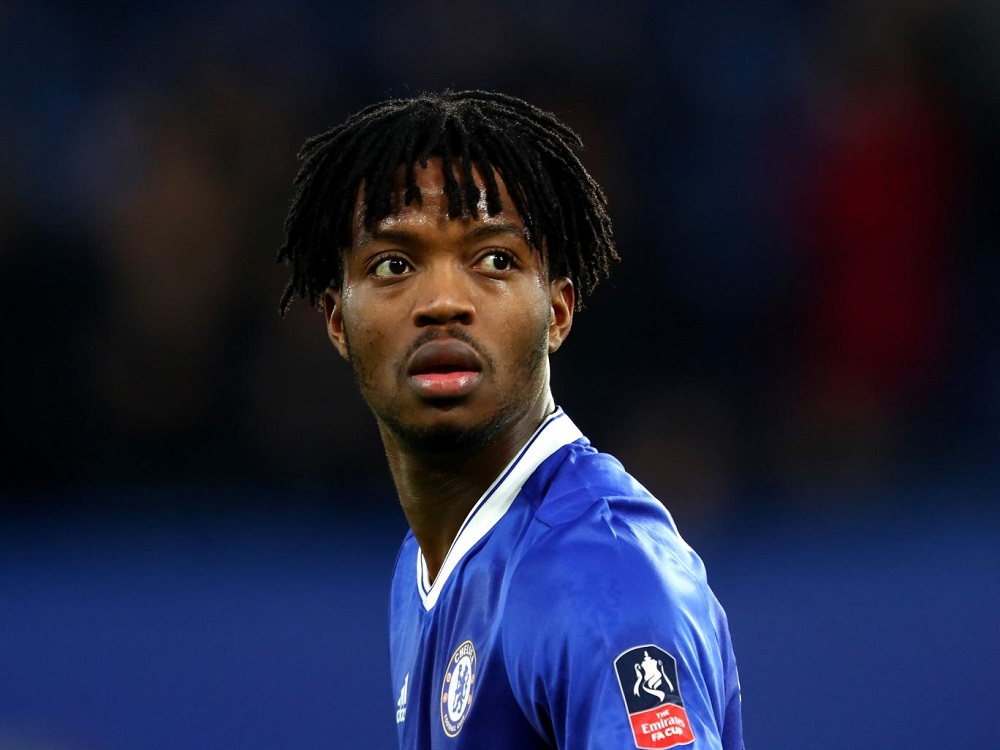London – At about 8pm last Thursday, Nathaniel Chalobah, then still of Chelsea, posted on Instagram a picture of the former Queens Park Rangers and Crystal Palace defender Fitz Hall. The subject of several weeks of transfer rumor linking him with Swansea, Southampton and Watford, perhaps this, finally, was a clue to Chalobah’s next move. Either that, or he just likes Fitz Hall. No words accompanied the picture, though for some reason there were three alarm clocks superimposed upon it.
Within half an hour a group of Watford fans on an internet forum had proved, using the grain of wood in a table, the shade of magnolia on the wall, a tiny section of visible armrest and an old and apparently unrelated club video, that Hall and thus Chalobah himself was at their team’s training ground, a process that was at least as entertaining to watch as the majority of the Hornets’ games last season and certainly involved more creativity. At 11pm, the cat now being some distance from the bag, the player’s transfer was officially confirmed.
The following day Monaco’s Tiemoué Bakayoko posted, again on Instagram, a picture that also turned out to be of another club’s training ground. It required rather less detective work to work out the subtext of this one, given that it featured an actual pitch, Chelsea’s badge (and, indeed, their manager) was visible, and Bakayoko had decorated the image with four large arrows and several repetitions of the word “soon” in bold capitals. In case anyone required further help, the player had previously posted a picture of himself on the Eurostar with an English textbook. His move was announced on Saturday. Both players, as it happens, are central midfielders, the Frenchman arriving at Cobham hours after Chalobah’s departure to take his place in the Chelsea squad, or at least a much more lucrative and high-profile version of it.
There was something telling about the two pictures, which had revealed not only the identity of the players’ next employers but deeper truths about English football itself, and in particular about the one club the two deals had in common.
Both photographs were attempting to do the same job, in the same place. To find the stories they disclosed, one required a bit of effort; the other did all the work itself and then, to make sure everybody had noticed, attached some fireworks and set itself on fire. One was a whisper, the other a wailing klaxon – a klaxon clad in blinking neon and accompanied by a team of Red Arrows jets scribing key words in the sky using multicolored vapor.
Had two different clubs been involved, one could have been criticized for refusing to do the hard work, for only recognizing talent after it has been hyped to the heavens. Yet Chelsea, with six FA Youth Cup wins in the last eight years, boast the best and busiest youth system in England. They had spotted Chalobah as a 10-year-old and nurtured his talent through 12 years, half as many loan spells and 97 England caps at a variety of age groups, culminating last year in him making one start and nine substitute appearances for them in the Premier League. And then they lost him, for an initial £5m, before moving for someone four months older, eight times as expensive and carrying a different passport. Chelsea did the hard work. Then they undid it.
A club should consider a £40m signing not as a source of pride but as evidence of dismal failure. Effective scouting operations should be able to get by without an outsized checkbook. Though Corentin Tolisso and Alexandre Lacazette, whose moves are two of the biggest of this summer so far, had both spent their entire careers at Lyon, the rest of the window’s 10 biggest transfers to date had all changed clubs at least once already. The two biggest sales by English teams, Romelu Lukaku and Michael Keane, had previously been owned and disowned by Chelsea and Manchester United respectively. Logically the aim must be to catch the best young players on the first rungs of the ladder, before they make their names and inflate their values.
But perhaps, sometimes at least, it isn’t. It could be that clubs find global audiences particularly appreciative of the teams most crammed with expensively assembled headline players, and therefore more keen to clothe themselves in their branded leisurewear and consume the products of their official noodle partners. In other words, for elite, globally-renowned football clubs, spending more money leads directly to earning even more money. So Chelsea might have been disappointed to lose a brilliant young midfielder for a pittance, but on the plus side it gives them the chance to buy him back in the future, when he is a bit more famous and a lot more expensive.
Or maybe it’s just a British thing. Many years ago the nation’s finest goldsmiths could have decorated the crown jewels with Manx agate, Cornish amethyst and Blue John from Derbyshire and still their creations would have evoked awe and wonder. Instead, though, we plundered the most splendid gemstones from across the globe, brought them home and swiftly mounted them upon the nearest scepter. Whether on a football field or a monarch’s head, we are a people that appreciates objects of great beauty and quality – especially if they are extraordinarily valuable and used to be somebody else’s.
The Guardian Sport
